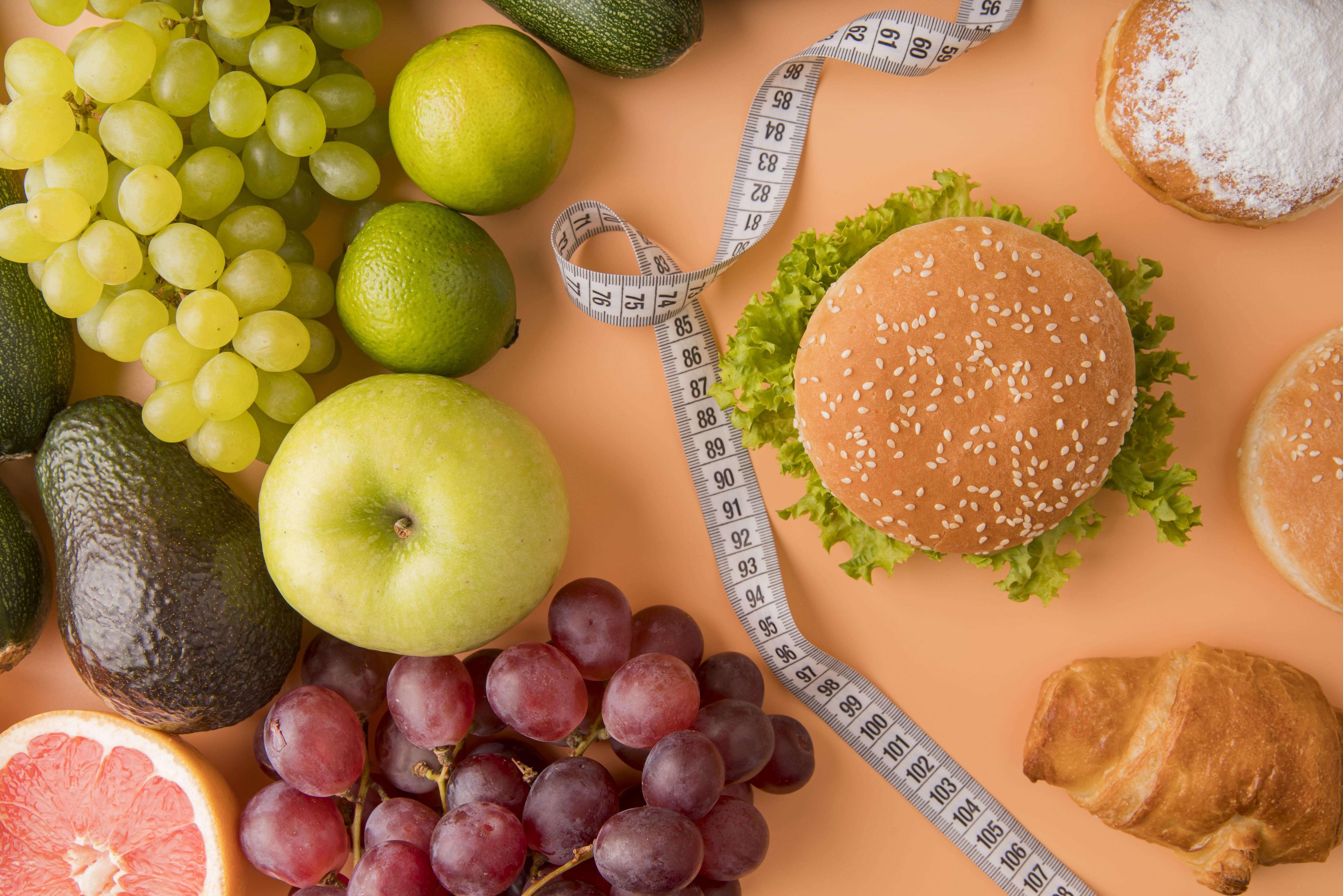
Living Healthy is an integrated health program that emphasizes nutrition. Its intergrative functional approach focuses on high-quality foods and nutrients that promote wellness. It considers the whole person. Participants are assessed for their health and given guidance to help them create and implement plans to improve it. Its free, downloadable booklet is also available in Spanish and English. It includes tips and recipes to help you lead a healthy lifestyle. Visit the Mayo Clinic website to learn more about this program.
Living Healthy is evidence-based. The program focuses on system problems that can lead to chronic diseases. To tailor individual care, it also includes integrative functional nutrition (IFN), which is a form of integrative medicine. Every person has different needs and each person's immune system and gut health will determine the nutrients and food they need. This program will make you a better health expert and help you feel more confident.
Living Healthy Florida is an initiative that brings together people to share information about their health. Roadmap to Living Healthy is one example. This tool uses data and shows what the community needs in nutrition. Improved diet quality can have a significant impact on a child’s learning ability, social skills, as well as the cost of their health care. The program allows you to increase access and reinforce healthy behaviors at home. It's a comprehensive program that will benefit your whole family, friends, and your overall health.

Remember that solid fats can be bad for your heart, waistline, and stomach. Recommend whole grains over refined grain. Healthier dairy products include low-fat and no-fat versions. You can eat beans, eggs or vegetables as well as fruits and vegetables. A thin crust made from whole grains is healthier than a thick one when you order pizza. You can choose to have a slice of veggie pie with reduced-fat cheese or fat-free cheese if you aren't sure whether you want cheese-filled pizza.
You can reduce the size of your meals if you are trying to live a healthy lifestyle. Many restaurants serve enough food for two people, so you can order half or split your entree. You can also limit your intake to one or two portions of each dish. A quarter cup of spinach is more nutritious than a quarter cup of chicken. However, an entire plate of fried chicken can be healthier for only a half-cup. You'll feel fuller and eat less if you choose fruits and vegetables high in fiber.
FAQ
What does milk do?
The next time you buy milk, think about what else you could use it for. You might also find it helpful to stop drinking coffee.
It has been proven that milk is beneficial for both children and adults. Children get nutrients like vitamin D, calcium and potassium from milk.
It promotes weight gain, digestion, bone strength, and aids digestion. The immune system is stronger and there are fewer illnesses in adults who consume dairy products.
Lactose is also a major component of milk, so those who are unable to digest it easily can still enjoy the benefits of this sugar without having stomach problems.
You can drink more milk than you would soda or juice. You can strengthen your teeth with the extra calcium and vitaminD found in milk.
Plain low-fat yogurt is another option if milk tastes bland to you. Yogurt has lower calories and is richer in protein than milk.
Yogurt also has probiotics that aid digestion and increase immunity.
Warm milk can help you sleep better if you have trouble falling asleep. Warm milk relaxes muscles and increases serotonin levels, helping you get a good night's rest.
Do you allow me to go to the fitness center 7 days a semaine?
Yes, you could go to the gym seven days per semaine but not all at one time. This means you need to choose a time when you feel rested and not too tired.
This will help you stay motivated and keep you energized for other activities.
It is important to eat right during these times. This will make it so you don't feel tired or sluggish while going to the gym.
Last but not least, ensure there are no other people competing for your time. For example, if you have children, you may want to avoid exercising on school nights as they will distract you from your workout.
Is it true?
Protein helps to maintain healthy bones, tissue, and skin. Too much protein can cause calcium to be excreted through the urine. This can cause kidney stones.
It is important to remember that not all people get kidney stones from eating more than 2g protein per kilogram (2.2lbs) of body weight. You don't have to eat a lot of protein to get kidney stones.
You can prevent kidney stones by watching your sodium consumption. Sodium is important for maintaining the body's water balance. Too much sodium results in a higher risk of developing kidney stones.
You can also try reducing your protein intake if you get kidney stones. For most people, protein provides half their daily caloric requirements. If you cut back on protein, you'll likely lose weight.
If you do decide to eat more protein, don't go overboard. Aim for less than 20% of total calories from protein.
Is Cardio Better Than Strength Training?
Both are equally beneficial. Cardio is better if you are looking to build muscle faster.
Cardio burns more calories per hour than strength training, and also burns more fat.
Strength training builds muscle mass, but it takes longer to achieve this goal than cardio.
Which exercise is the best for men?
It depends on what you're looking for. Cardio workouts are great for losing weight because they burn calories more quickly than strength training exercises.
On the other hand, if you just want to build muscle mass, then strength training is better since it increases lean body mass.
Both types of exercise are proven to be beneficial if you're looking to improve your overall health.
I recommend HIIT (or sprint interval training) if you want to be fit quickly. This type helps you burn fat quickly, by increasing your metabolism. It will also help you stay motivated to train even when your body is tired.
Statistics
- An estimated calorie range for moderately active adult males falls between 2,200 to 2,800 calories per day, depending on age. (eatright.org)
- According to the American Heart Association, blood pressure should be checked at least once every two years, beginning at age 20. (my.clevelandclinic.org)
- By John Thompson Take a whopping 38% off a set of PowerBlock Pros. (menshealth.com)
- According to the American Academy of Dermatology (AAD), men over 50 are at a heightened risk of developing it. (healthline.com)
- Cardmembers earn 5% Back at Amazon.com with a Prime Credit Card. (amazon.com)
External Links
How To
What nutrients does a man need daily?
Healthy growth and development of men requires healthy nutrition. Vitamins, minerals, vitamins, nutrients, carbohydrates, fats and fiber are all essential for the body.
The male body also requires specific nutrients at different times throughout the day. You can see that your body uses energy to make hormones. You use protein to build muscles and repair damaged tissue when you wake up.
At night, your body breaks down fat and stores the extra energy as glycogen. Your body still requires sufficient nutrients and calories even though it needs less calories. You may have an occasional snack during the evening hours if you feel hungry.
Working out requires adequate carbohydrate and protein intake. After a hard workout, muscle soreness may occur.
To prevent this from happening, you need to consume carbs or protein within two hours. To get energy from glucose, your body will start to degrade stored glycogen.
After your workouts, you should eat protein immediately. This will prevent muscle tissue from being damaged while you sleep.
During periods of intense physical activity, your body produces lactic acid. Lactic acid builds up in the bloodstream and causes fatigue. This can be avoided by eating foods high in carbohydrates like fruits and vegetables.
Carbohydrates provide energy for your body to recover after strenuous exercise.
Your diet may include lean meats like fish, eggs, milk cheese, yogurt or beans as well as lean proteins such as fish, eggs, egg yolks, cheese, yogurt, bean, peanuts and seeds.
All these foods are high-quality sources of protein. Protein promotes muscle growth and repairs damaged tissues. Protein provides the amino acid your body needs for testosterone and sexhormone production.
You also need enough dietary fats to maintain good skin, hair, nails, and joints. Healthy men need between 20% - 35% of the total caloric intake to be fat.
Fat helps keep your heart strong and protects against cancer. Your brain also functions properly thanks to fat.
Vegetable oils, such as olive oil, sunflower oil or corn oil, soybean oil and peanut oil, can supply most of the fats you require.
These oils are high-in monounsaturated, unsaturated fatty acid (MUFAs). MUFAs reduce cholesterol and inflammation. They protect your cells and prevent damage from free radicals.
Saturated fats are found in animal products including meat, dairy products, butter and other dairy products. SFAs can raise LDL ("bad") cholesterol levels and increase triglycerides. They can also increase weight and reduce belly fat.
Polyunsaturated oil (PUFAs), which are plant-based, can be found in vegetable oils, nuts seeds, grains, and other plant-based products. PUFAs reduce inflammation and improve cardiovascular function. They also reduce blood sugar, cholesterol, and other inflammatory factors.
Men with low HDL ("good") cholesterol often suffer from erectile dysfunction. Saturated fats are a major source of bad cholesterol. This lowers good cholesterol.
Red meat and pork are a common source of prostate problems in men who eat a lot. When cooked at high temperatures, nitrates can be converted to nitrosamines. These compounds can cause cancer.
Most processed meats contain nitrites and other harmful chemicals. You should avoid them.
The American Heart Association suggests that no more than two servings per week of red meat should be consumed. Instead, choose poultry, fish, legumes, tofu, whole grain bread, and cereals.